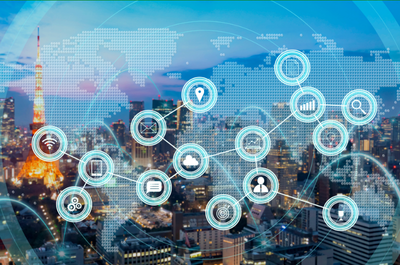The digital economy boasts a rising contribution to Philippine economic growth in terms of value-added and employment, but it still needs to realize its full potentials through investments and policy and regulatory reforms, with the aim to improve internet connectivity across the country, says a new report.
“The Philippines possesses significant opportunities in the platform economy, Industry 4.0, the gig economy, the sharing economy, and the algorithm economy,” asserts the Philippine digital economy report that forms part of the ASEAN Digital Community 2045: Country Perspectives, a recent publication by the Economic Research Institute for ASEAN and East Asia (ERIA).
However, the Philippine report warned that policy bottlenecks are hindering the growth of the digital economy even with the various plans and programs being implemented to advance the digital transformation of the Philippines.
The Philippine Statistics Authority defines “digital economy” as constituting the activities that leverage knowledge, information, and information and communication technology (ICT) to spur economic growth. Digital economy encompasses digital-enabling infrastructure, digital transactions under e-commerce, and digital media.
In 2022, the Philippine digital economy reached P2.08 trillion, contributing 9.4% to the country’s gross domestic product, and employed 6.05 million people, said the ERIA report.
“Although enabling policies and programmes have been introduced, inadequate digital infrastructure impedes the development of smart cities, contributing to the country’s lag in digital transformation. Outdated policies and regulatory barriers hinder infrastructure development, whilst bureaucratic inefficiencies drive up expansion costs for enterprises,” said chapter author Francis Mark Quimba.
He urged the government to continue with policy and regulatory reforms and investment in specific network segments to improve internet connectivity, especially in areas outside urban centers.
Quimba also pushed for addressing the fragmented policy support for the digital economy. “It is recommended that the various strategies from different government roadmaps be consolidated into a single official policy framework,” he said.
Aside from policy bottlenecks, the report identified a shortage of internet service providers (ISPs) as among the other contributors to the Philippines’ lackluster digital economy performance compared to its neighbors in the Association of Southeast Asian Nations (ASEAN).
It pointed to a national ICT and household survey conducted in 2019 by the Department of Information and Communications Technology (DICT) indicating that only 54% of the 2,617 surveyed barangays were covered by telecommunication companies and around 20% lacked ISPs altogether.
In a GMA News report dated August 14, 2025, the media outlet said President Ferdinand Marcos Jr. is currently reviewing the proposed Konektadong Pinoy Act, the legislative measure that aims to liberalize and modernize the Philippines’ internet infrastructure by allowing the entry of new ISPs without the need to secure a legislative franchise.
If the President takes no action by August 24, 2025, the bill will reportedly automatically lapse into law.
Another issue hindering the digital economy is the prohibitive cost of ICT services in the country, with poor internet quality exacerbating the issue, said the paper.
In 2021, the Philippines ranked third in ASEAN for the most expensive ICT services, while in 2022, it was found that the average cost of 1 gigabyte of data in the Philippines was higher than most ASEAN countries. The 2022 Digital Quality of Life Index by Surfshark also indicated that internet services remain unaffordable despite some improvements.
Other challenges include a scarcity of secure internet servers, trust and data privacy concerns, and a job market that lacks digital skills.
“A lack of skills and low digital adaptability are primary concerns in the digital economy,” said the document. “In 2021, the Philippines ranked 54th in digital and technological skills and 58th in the World Digital Competitiveness ranking, down from 46th in 2017, indicating a decline in talent, education, and training.”
Furthermore, the limited access to financing and a general lack of awareness among enterprises of the digital support programs of the government are also major challenges.
“The costs associated with joining e-commerce platforms also reduce the profitability and sustainability of small businesses. Information on training and funding support is crucial, yet studies… have documented a general lack of awareness amongst stakeholders regarding government efforts,” the document observed.
Published: August 15, 2025
Photo source: Canva
Photo source: Canva
August 15, 2025













